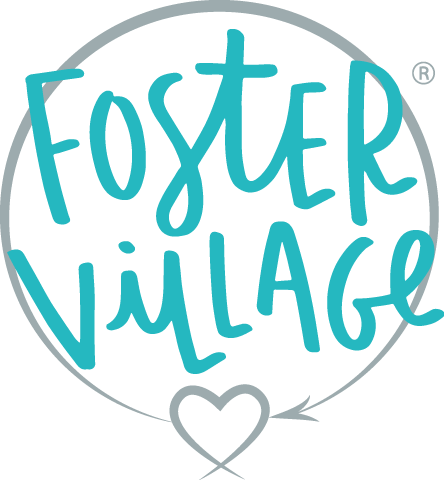The First 30 Days
The first 30 days of a foster care placement can feel chaotic and stressful. Even after welcoming nine children in five separate placements over the past four years, I am still always caught off guard at how many things have to get done in those first 30 days.
In this post, I want to bullet-point the main things that need to be completed within the first 30 days of a foster placement.
For fellow foster parents, I hope this is a helpful guide as you navigate it all.
For those who support foster families, I hope this provides a window into what gets added to a foster parent’s plate when they accept a placement and encourages you to come alongside them in providing extra support.
(It should be noted that not all of these bullet points have to be completed for every child who enters your home. Some of these items only apply to children of certain ages, and some may have been completed already by a previous placement if they are coming from another foster home, group home, or shelter. Because each agency has its own contract with the state, some agencies have additional rules. Make sure to talk with your case manager about specifics if you have questions.)
The First 24 Hours
-
When the caseworker brings the children to your home, you should receive a big stack of paperwork. Occasionally, though, something will be missing and you will need to request it from the caseworker. Many of these documents will be necessary to complete everything else on this list during the first 30 days.
- Signed copies of the Placement Authorization, Education Decision Maker, and Medical Consenter
- Copy of the Birth Certificate (or CPS printout alternative)
- Copy of the Social Security Card (or number)
- Medicaid Card (or number if a card hasn’t been requested yet)
- Vaccination Record
The First Three Days
- Initial health appointment: If this is a child’s first time in foster care, then they will need to be seen by a health professional within the first 72 hours of placement. This is not required for kids coming from other placements (unless the caseworker states otherwise). If a child comes without a Medicaid card, you will need to find a pediatrician who will take them with only a number; call around and ask before you make an appointment.
- School enrollment: If a child is Kindergarten-age or older, then they need to be enrolled in your local public school within the first three days of placement. (Please note, if you do not have a vaccination record yet, the school is still legally required to enroll the child). If your child has an IEP or 504 plan, make sure the school knows this and is prepared to implement those plans. Children in foster care also qualify for free meals at school; you can sign them up for meals after completing the school enrollment.
The First Two Weeks
- Adversary hearing: If this is a child’s first placement, then they will have a court hearing within the first two weeks that will establish a legal plan and set a schedule for future court dates.
- Initial family visit: If you are the child’s first placement, then the CPS investigator or caseworker will contact you about scheduling the first family visit which should take place no later than five days following the adversary hearing.
- Visitation plan: The caseworker will work with you to set up a regular schedule for visits with the child’s parents and/or other family members.
The First Thirty Days:
- Pediatrician appointment: Make an appointment with a pediatrician to establish care and take care of any tests, vaccinations (if allowed, make sure to double-check), or referrals to specialists. If a child is new to foster care, they will need a vision screening, a hearing screening, and a PPD test. Newborns will need to be seen at 2 weeks for this appointment.
- Dentist appointment: If you are a child’s first placement, then they will need a dental exam and cleaning within the first 30 days.
- CANS assessment: Every child over the age of three must have a CANS assessment completed within the first 30 days of entering foster care. This is a behavioral health assessment and must be done by a behavioral health doctor. Some agencies will provide CANS through the agency. If yours does not, you can call the number on the back of the Medicaid card to get a list of behavioral health doctors in your area.
- Psychological evaluation: Depending on the age, developmental needs, and behaviors of a child, the caseworker may require you to schedule a psychological evaluation for the child. Your agency should be able to give you a list of places you can get this done in your area.
- Psychiatric appointment: Is the child on any psychiatric medications? If so, then you need to make an appointment with a psychiatrist or another doctor who is willing to manage medications for the child. (If the child is on medication for ADHD, a pediatrician may be willing to manage meds, but most pediatricians will not be willing to manage other psychiatric meds such as mood stabilizers).
- Agency paperwork: Every agency will have different requirements, but you will have to do paperwork for all of them within the first month. For example, my agency requires foster parent progress notes, medication logs, clothing and personal items inventories, a fire drill, and a daily schedule.
Other (not required, but can be very helpful at the start of a placement):
- WIC: If you have a child under the age of five, they automatically qualify for WIC. WIC will provide credit for food or formula every month that can be used at the grocery store. Just call your closest WIC office, let them know that you have a new foster placement, and they will tell you how to sign up.
- Over-the-counter program: Superior Medicaid will give you $30 every three months for every child in your care to spend on the CVS website for over-the-counter pharmacy items. Go to the Superior Medicaid website for more information on how to sign up.
- Daycare: If you (and your spouse, if married) work at least 40 hours a week, you can qualify for free daycare for children who are too young for school. Talk with your caseworker if this is something you need.
Does this feel like a lot to get done in 30 days? You’re right, it is! But you can do this, and you have a village to support you!
Foster Village has been my family’s biggest support each time we have gotten a new foster placement. From car seats and clothes, sensory items from Project Soothe, Therapeutic Support for hard behaviors, and (my personal favorite) Caregiver Gatherings to connect with other parents who can relate to what you are experiencing, Foster Village has truly been our village, and they can be yours too!
I hope this list helps you to organize your thoughts as you navigate the first 30 days and reach out to this incredible village of support.
Maybe you aren’t a foster parent, but you want to support foster parents during their first 30 days of a foster placement. Here are some ideas for you:
- Bring a meal: The first week can be especially chaotic, and meals can be very helpful. Consider bringing something kid-friendly like pizza or hamburgers (maybe with a side of salad or fruit for the parents who are probably getting tired of kid food).
- Offer to pick up supplies: Does the family need diapers? Do they need a certain color sippy cup that just broke and the child won’t drink water without it? Just ask! Everyone will have different needs, and you can lessen a family’s stress by picking up needed items.
- Hang out with the kids: Did you make it through the long list above? It’s difficult to get all of these things done when you have the kids running around and needing constant supervision. One of the things that has been most helpful for me when I have gotten my last few placements is a couple of friends who have come and played with the kids in the backyard while I made phone calls to doctors, schools, and caseworkers. You don’t need any special training to do this. Just bring a soccer ball or some puzzles with you, and give the parents some time to get through this long list.
The first 30 days of a foster placement can feel wild and overwhelming, but you’ve got this, and we are here for you!


